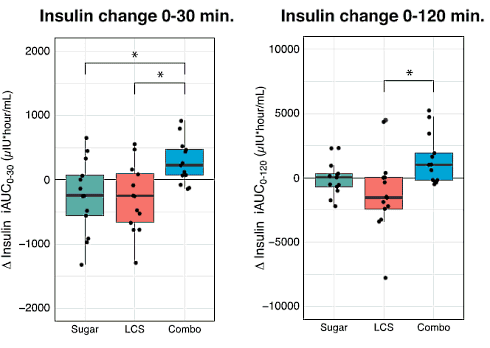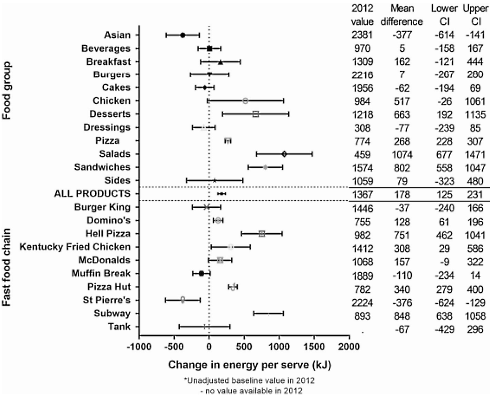|
Definition: "An ergogenic aid is any substance or phenomenon that enhances performance "
|
|
||||||||
17.09.2020 |
|
|
Sweetener sucralose reduces insulin sensitivity | Human study
Sucralose, a synthetic sweetener that is a thousand times sweeter than sugar, causes symptoms in healthy people that resemble a pre-stage of type-2 diabetes. Researchers at the University of Yale write this in Cell Metabolism. Although the subjects didn't actually get sick, the results were so troubling that the university advised researchers to discontinue their study.
Study
The subjects in one group drank a product containing 60 milligrams of the sweetener sucralose [LCS]. The other group drank a product containing 30 grams of sucrose [normal table sugar] [Sugar]. The subjects in the third group drank a product containing 60 milligrams of sucralose plus 31 grams of the carbohydrate maltodextrin [Combi].
The chemical structure of sucralose is very similar to that of sucrose. In three places, however, sucralose has chlorine groups that sucralose lacks. Because of these chlorine groups, according to some studies, sucralose is a thousand times sweeter than sucrose.
Results
That picture changed when the researchers looked at the amount of insulin that was present in the blood of the subjects after the administration of the glucose. This amount was significantly greater in the subjects who had received soft drinks containing maltodextrin plus sucralose.
This implies that the combination of sucralose and a rapidly absorbing carbohydrate makes the body less sensitive to insulin.
The researchers also saw that in a number of subjects, the combination of sucralose and a rapidly absorbing carbohydrate led to an increase in insulin early in the morning, even before the subjects had breakfast. This also suggests a reduced sensitivity to insulin.
Mechanism
The researchers speculate that via these receptors, sucralose can induce the body to absorb rapidly absorbing carbohydrates even faster - disrupting the balance between glucose and insulin and reducing insulin sensitivity.
Conclusion
"Similar exposure durations almost certainly occur in freely living humans, especially if one considers the consumption of a diet drink along with a meal. This raises the possibility that the combination effect may be a major contributor to the rise in the incidence of type 2 diabetes and obesity."
"If so, the addition of low calorie sweeteners to increase the sweetness of carbohydrate-containing food and beverages should be discouraged and consumption of diet drinks with meals should be counseled against."
Source:
More: Archives:
|
|
||||||||||||||||





